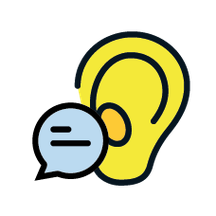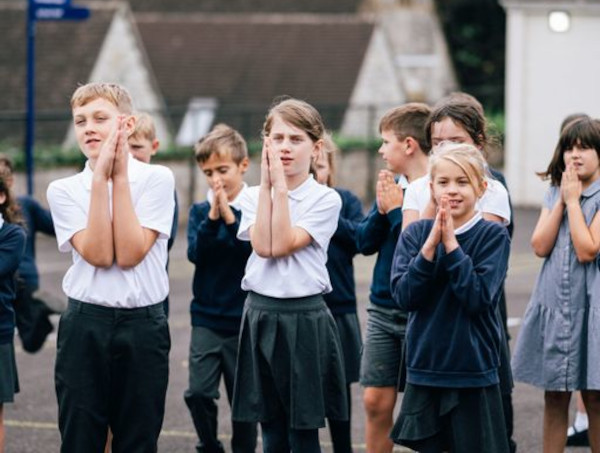Pupil Wellbeing
We are all aware of the increasing pressures which children may feel today. There are ways we can support our children to stay mentally healthy. The NHS is particularly helpful with guidance. Please visit https://www.nhs.uk/every-mind-matters/supporting-others/childrens-mental-health/
Ways to support a child or young person

Be there to listen
Regularly ask your child how they’re doing, to help them get used to talking about their feelings, and know there’s always someone there to listen. You can get tips on Young Minds: How to talk to your child about mental health.

Support them through difficulties
Pay attention to how your child is feeling or behaving and try to help them work through difficulties. It may not be easy facing challenging behaviour, but try to help them understand what they’re feeling and why. Learn more from the Maudsley Charity on difficult behaviour.

Stay involved in their life
Show interest in their life and what’s important to them. It not only helps them value who they are but also makes it easier for you to spot problems and support them.

Encourage their interests
Support and encourage your child to explore their interests. Being active or creative, learning new things and being a part of a team helps connect us and boost our mental wellbeing.

Take what they say seriously
Listening to and valuing what they say makes them feel valued. Consider how to help them work through their emotions in constructive ways. Anna Freud Centre’s guide on ways to support children and young people has more on this.

Build positive routines
Try to have structure around regular routines, especially around healthy eating and exercise. Maintaining excellent school attendance is crucial. A good night’s sleep is also important, so have a fixed time for going to bed and getting up. The Sleep Charity has relaxation sleep tips for children.
(https://www.nhs.uk/every-mind-matters/supporting-others/childrens-mental-health/ accessed 01/04/24)
How can we work together to support our children?
Whilst parents and carers are best placed to support their child in identifying an everyday ‘bump in the road’ and supporting their management of this by using and building resilience, we are able to support children with a variety of approaches and resources. Parents and carers will be aware that resources are limited and will be allocated on a priority needs basis which is managed by the school as a confidential assessment. Our resources include:
- Check-ins with a classroom adult
- A nominated adult which a child can seek out at recreation times
- An invitation to one of the Serenity lunchtime clubs with calming activities where numbers are kept deliberately small
- An invitation to the lunchtime chatty club where numbers are kept deliberately small so social skills can be built, shared and encouraged
- A one-off or short course of Emotion Coaching sessions
- Advice and support from the PFSA (Parent and Family Support Advisor)
- A Mental Health Support Team application and possible short course of sessions. This programme provides mental health support for children and young people, who may be experiencing mild to moderate symptoms of mental health problems.
Support for parents and carers
If you’re concerned about a child or young person’s mental health, you can get free, confidential advice via phone, email or webchat from the Young Minds Parents Helpline.
Action for Children has lots of tips to help you spot signs of mental health issues in children and advice on the action you can take to help.
Barnardo’s has also set up the See, Hear, Respond support hub – a dedicated service to help children, young people and their families or carers with problems caused by the coronavirus outbreak.
Experiencing the loss of a friend or loved one can be extremely difficult. The Childhood Bereavement Network has information and links to national and local organisations you or the child you look after might find helpful.
Any professional that works with children and young people should be able to help you get support. You could talk to a teacher, school nurse, social worker or GP.
You can find more information about NHS children and young people’s mental health services (CYPMHS) on the NHS website. You can also look at your local Clinical Commissioning Group website, and most services also have their own website with information about access, referrals (including whether you can “self-refer”) and contact details – try searching in your area for “CYPMHS” or “CAMHS” (children and adolescent mental health services, an older term used for some CYPMHS).
If you are worried about a child or young person who has or may have an eating disorder, check if your local Children and Young People’s Community Eating Disorder Team accepts self-referrals and contact them as soon as possible. You can also speak to your GP. Beat has lots more useful advice for children, young people and adults.
If you look after a child that has additional needs, Mencap, the Mental Health Foundation and the National Autistic Society all have excellent resources and support for parents or carers of children with learning disabilities or autism.
If you have any concerns at all about a child’s safety or wellbeing, including their mental health, you can contact the NSPCC Helpline 7 days a week, via the website or by emailing help@nspcc.org.uk or calling 0808 800 5000. It does not have to be an emergency – you might be looking for guidance and support. Dedicated NSPCC child protection specialists will be able to advise and take any necessary action.
(https://www.nhs.uk/every-mind-matters/supporting-others/childrens-mental-health/ accessed 01/04/24)



